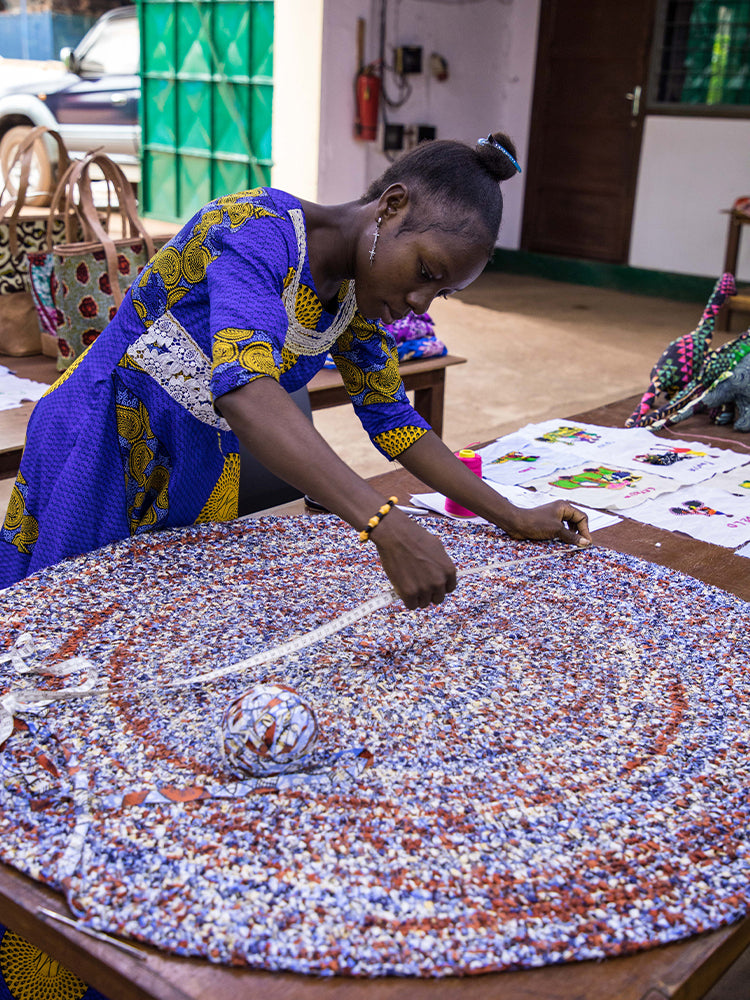
The Ndara Story
Ndara was created to tell a different story — one often overlooked in the shadows of conflict and crisis.
The Central African Republic (CAR) is known internationally for its instability and humanitarian struggles. What is rarely seen, however, is the immense creativity, strength, and resilience that continues to thrive in everyday life. At Ndara, we believe that the full story of a place includes not just its hardships, but its beauty, its culture, and the determination of its people to build and rebuild — again and again.
Founded in 2017, Ndara is a social enterprise that works directly with artisans in Bangui, CAR to design and produce unique clothing, accessories, and homeware. Every item is handmade from locally sourced materials — most often wax print cotton — and carries within it the skill, resourcefulness, and creativity of the person who made it.
“Ndara” means “to be skilled” in Sango, the national language of CAR — and it is this spirit that drives everything we do. Whether it's someone learning to read for the first time, braiding fabric into rugs, or managing our boutique, the development of personal and professional skill is at the heart of our approach.
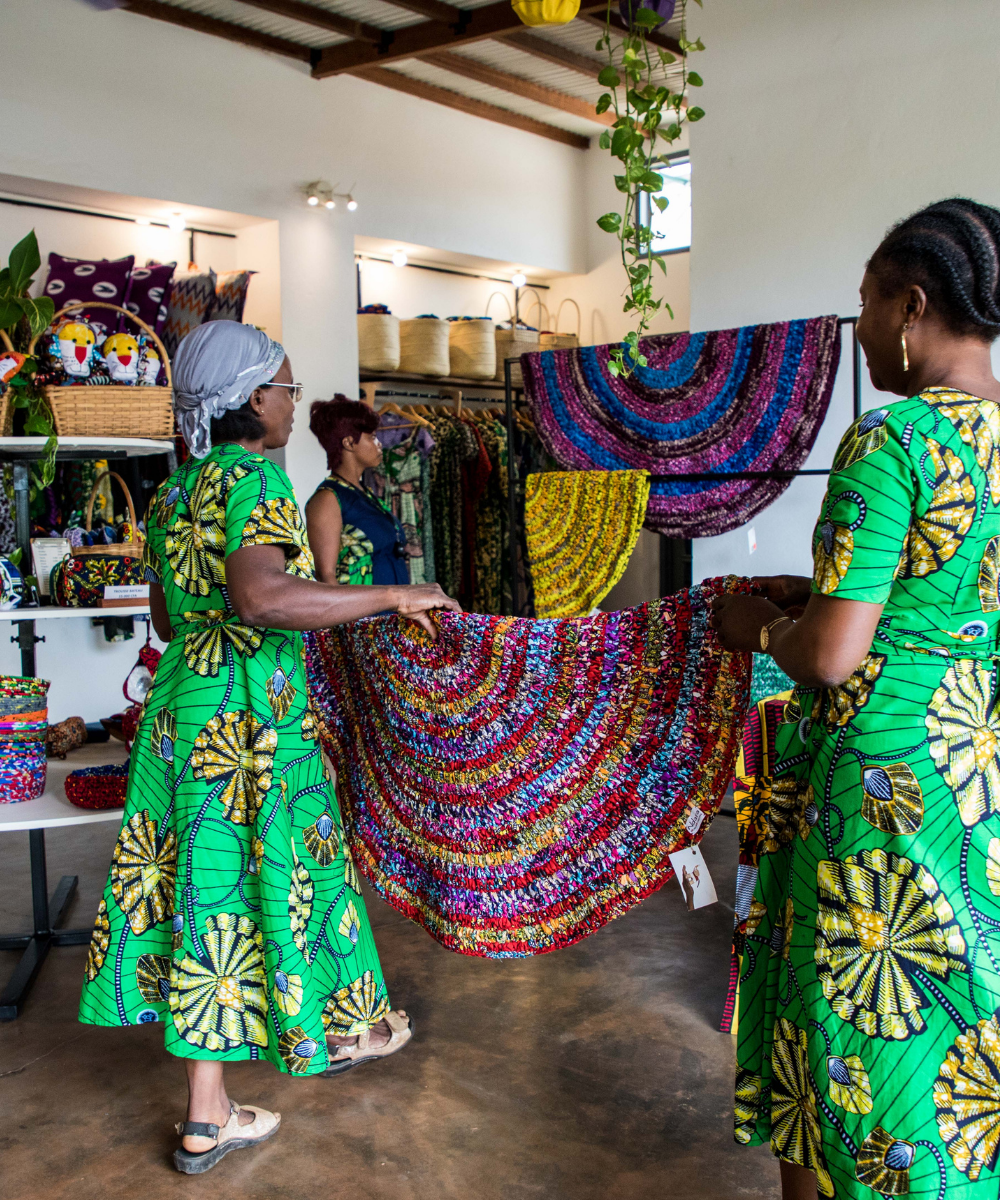
From a Rug to a Movement
We started small: with a single braided rug, crafted from fabric scraps, sewn by a group of women who met and trained in a makeshift workshop. From those early days of experimentation and trial-and-error, Ndara has grown organically. Today, our permanent workshop employs a full-time team of 14 artisans and our shop in Bangui is managed entirely by local staff — many of whom joined Ndara with no previous experience or formal education. They now oversee production, quality control, inventory, and sales.
Ndara takes a long-term, sustainable approach to economic empowerment. Our artisans earn more than a living wage and are supported not just as employees, but as partners in a collective vision. Many have been able to invest in land, education, or side businesses — building futures that would otherwise be out of reach.
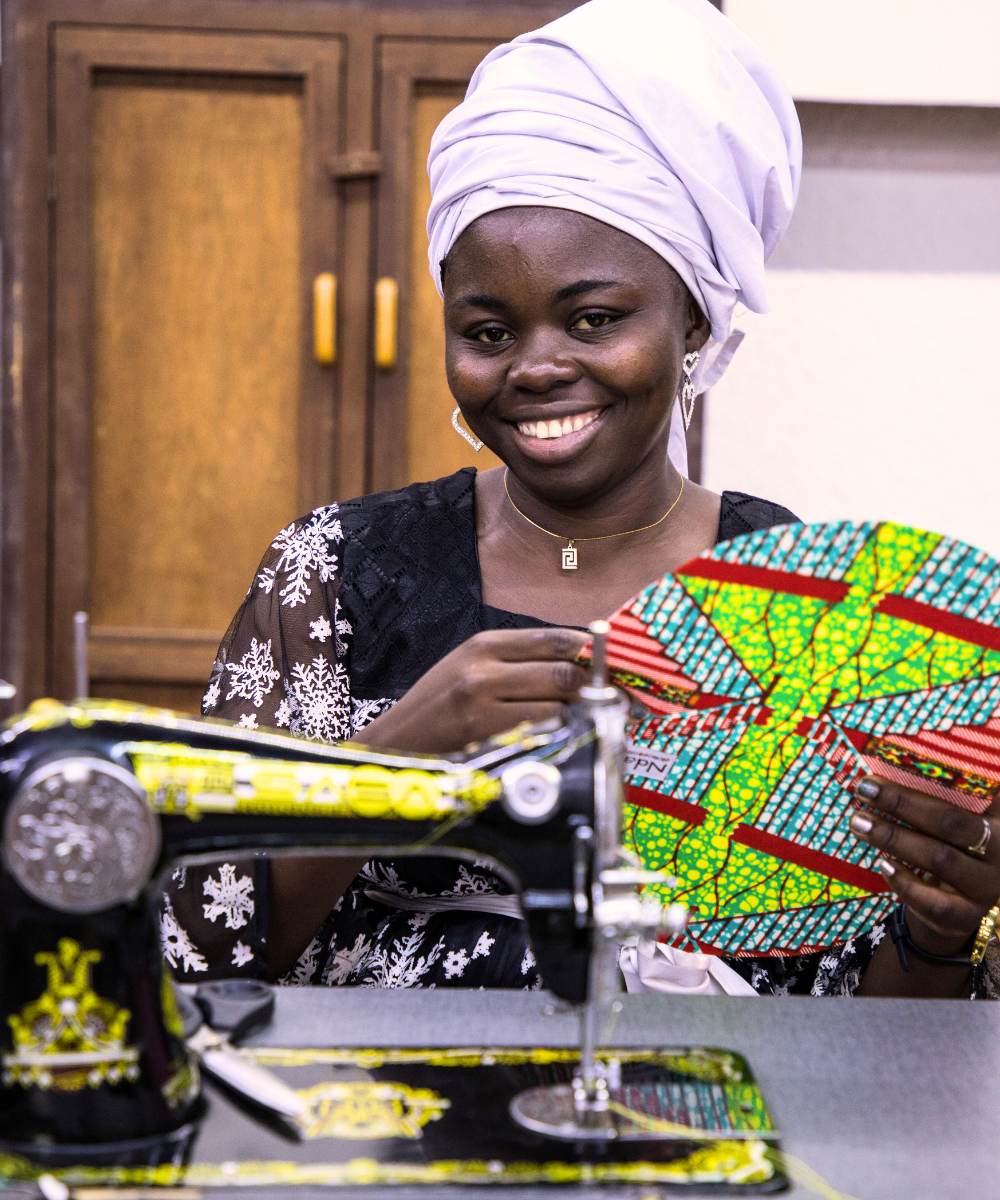
The Ndara Story
Ndara is more than a brand. It is a platform for craft, for self-expression, and for change. We believe that handmade things matter — not only because of how they’re made, but because of what they represent: care, intention, and connection. Every product we sell helps to share a broader story of Central Africa — one that includes dignity, joy, and creative possibility.
In a world that often reduces places like CAR to headlines, Ndara insists on telling the full truth: that even in the most difficult conditions, there is beauty, humour, and incredible human strength.
This is what we carry forward — in every stitch, every sale, and every story we tell.
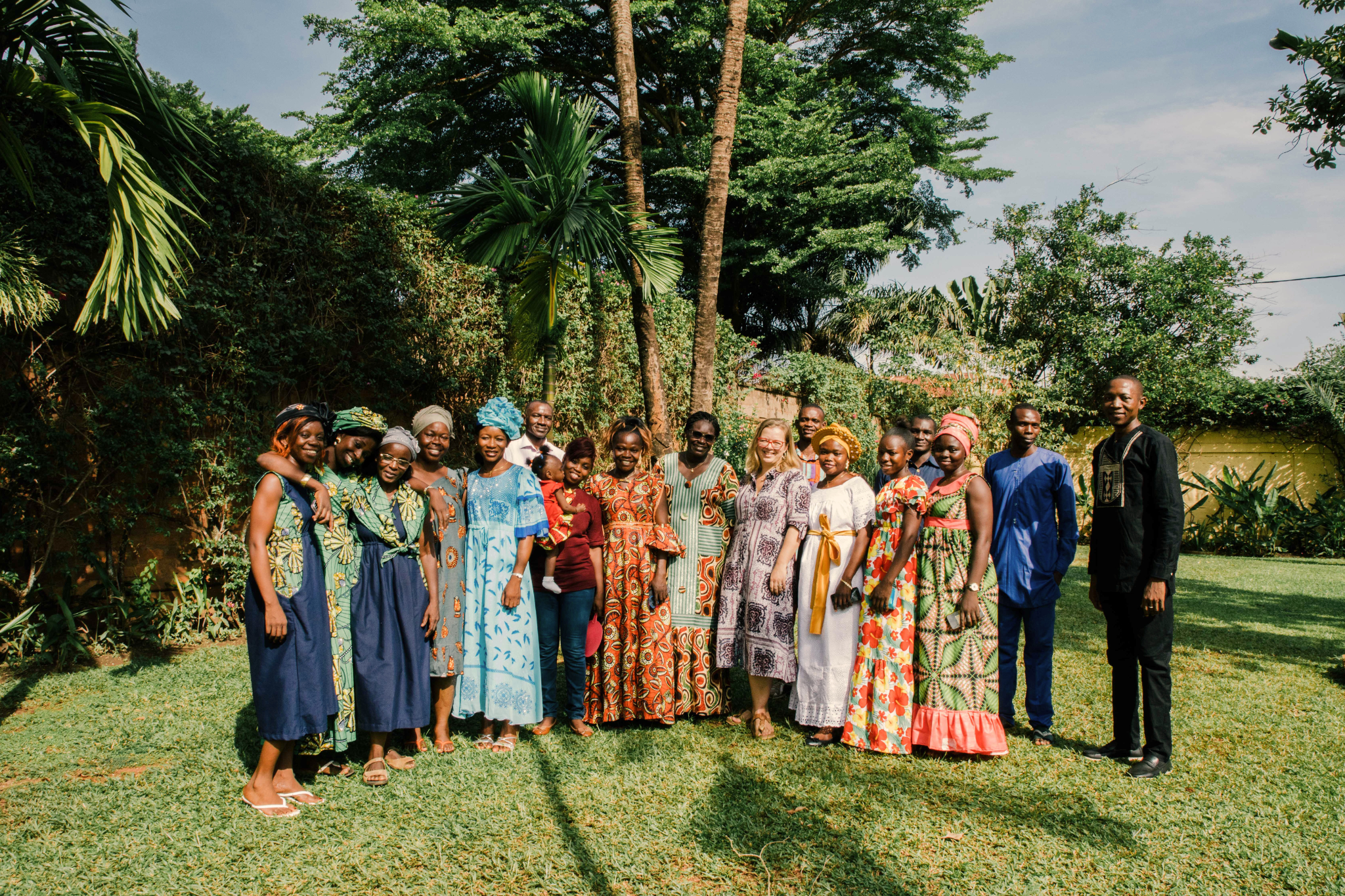
8 Years of Growth
Ndara began with one rug — now it’s a thriving artisan collective.
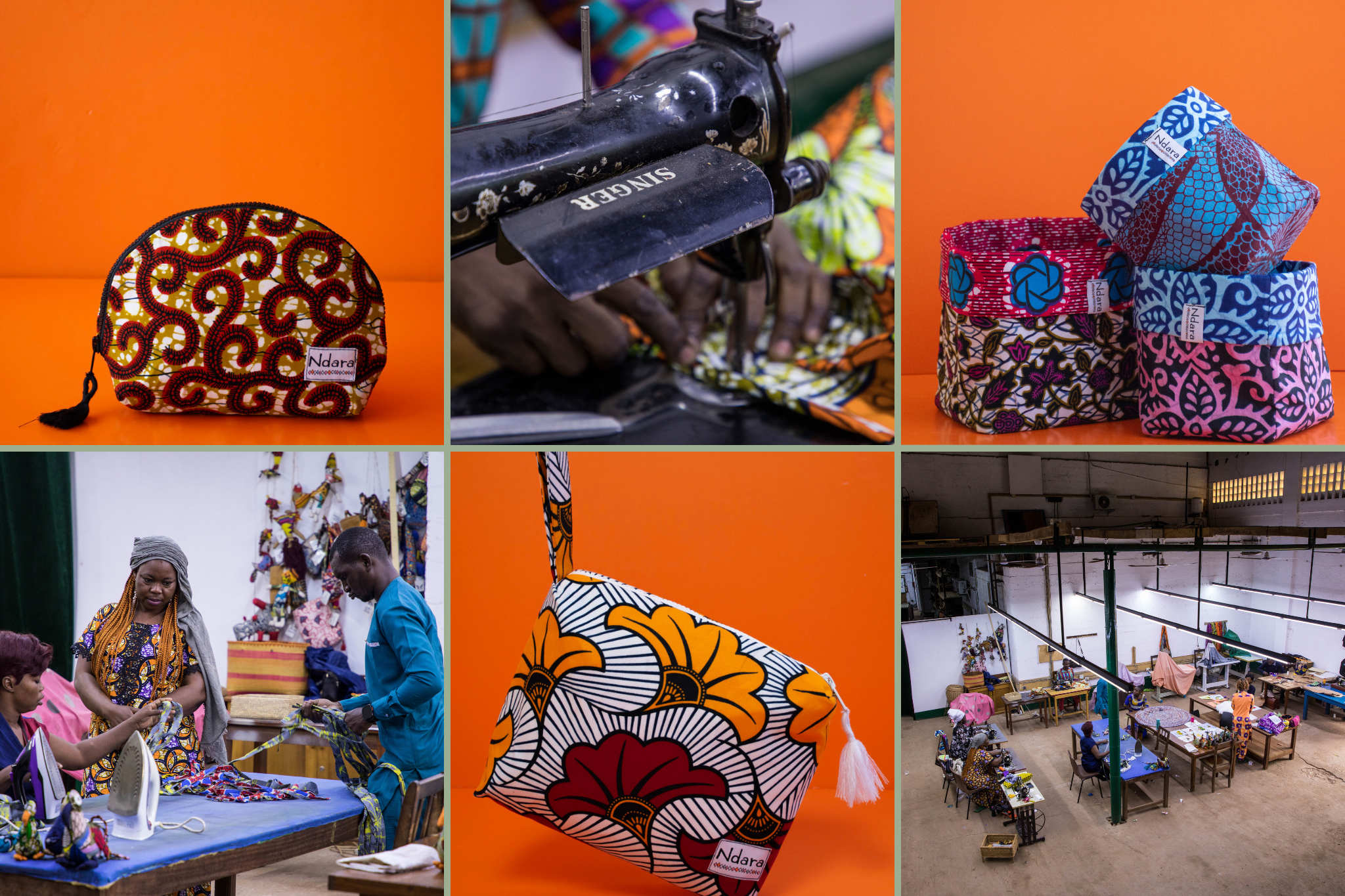
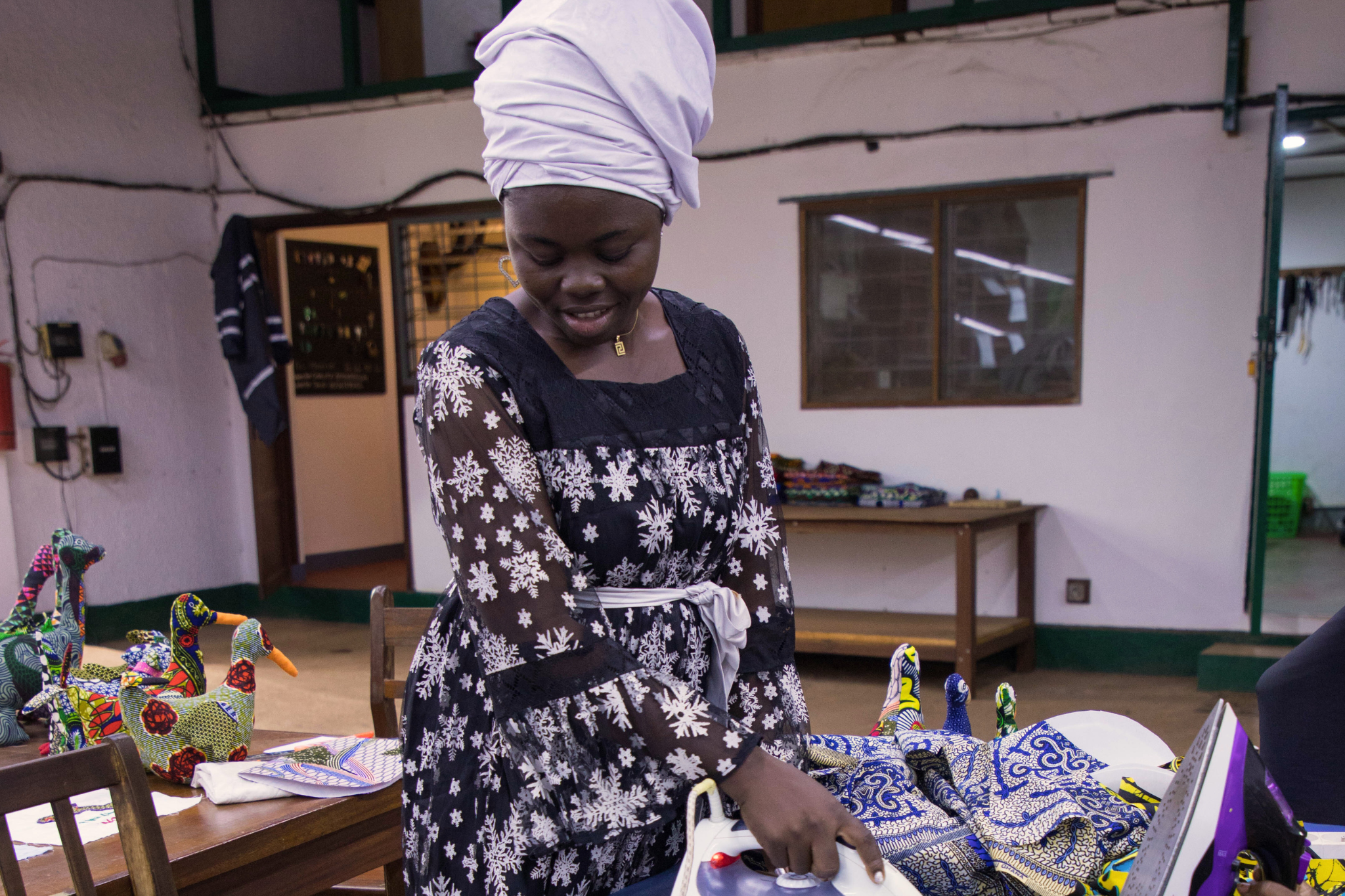
Our Impact
-
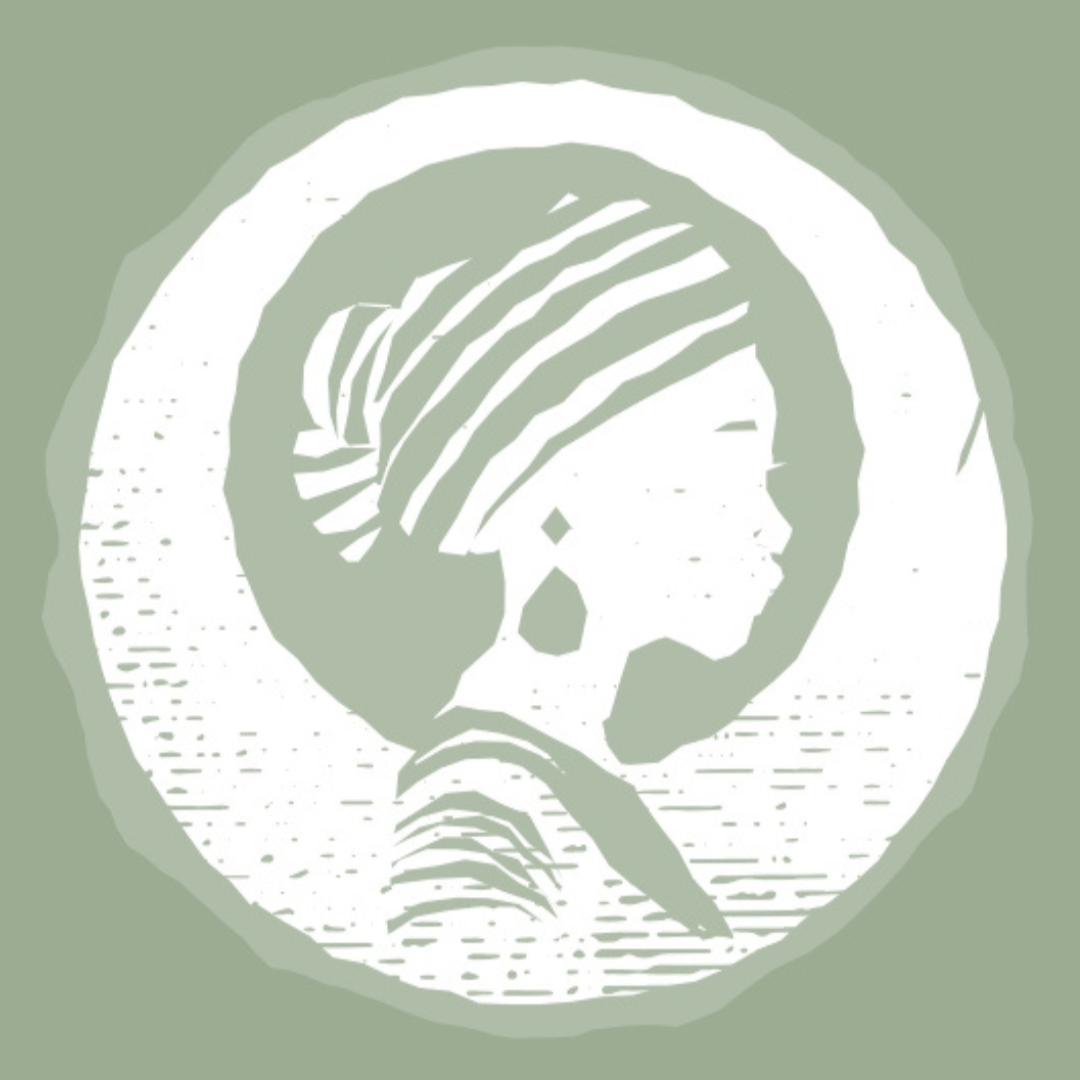
The Artisan
9 x The Minimum Wage
10% of Sales Reinvested in Training
0% Interest Loans
No Fee Savings Accounts
Emergency Healthcare
-
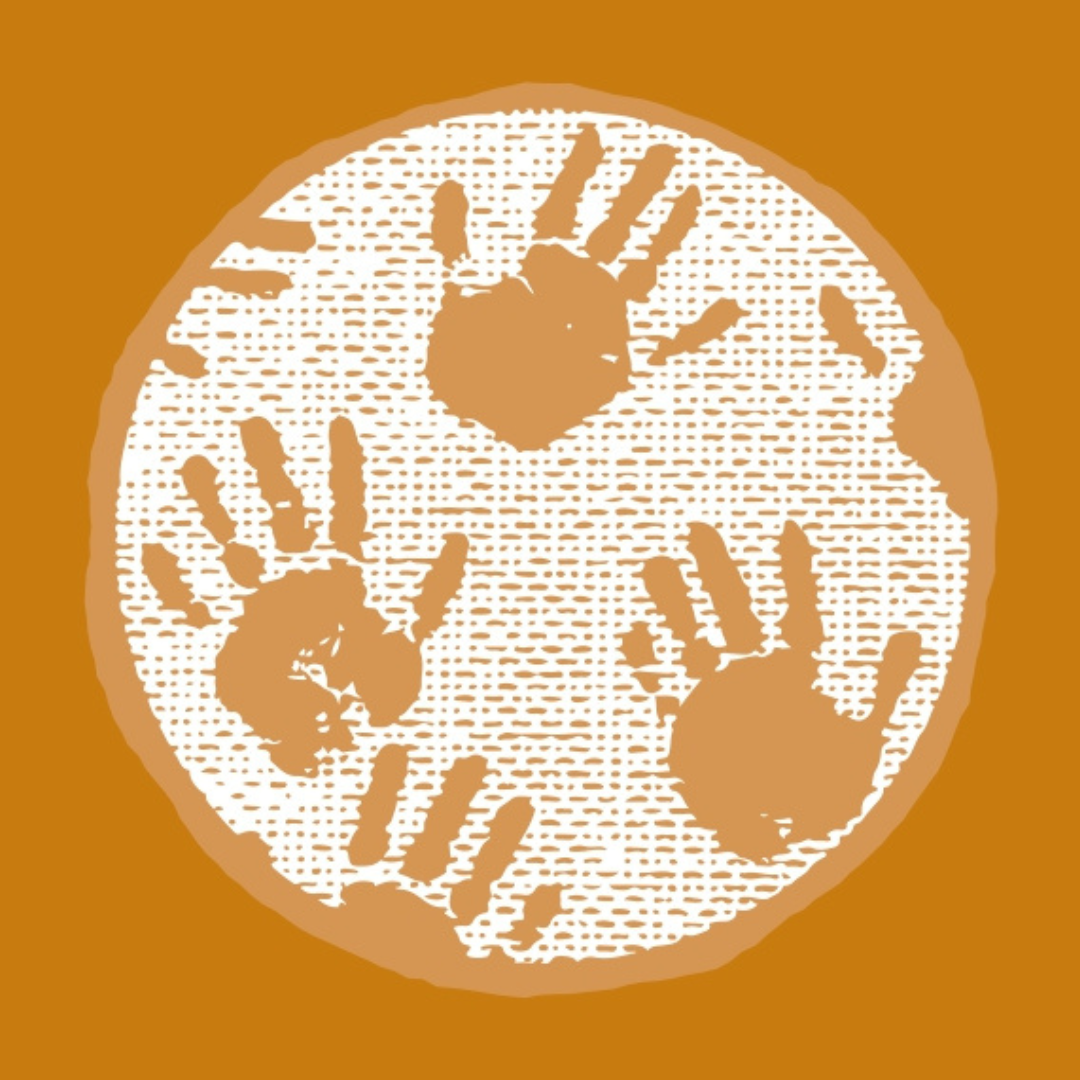
The Community
Emergency Family Healthcare
Artisan Children to School
Sourcing From Local Businesses
Collaborations with Local Artists
Training Offered to Local Artists
-
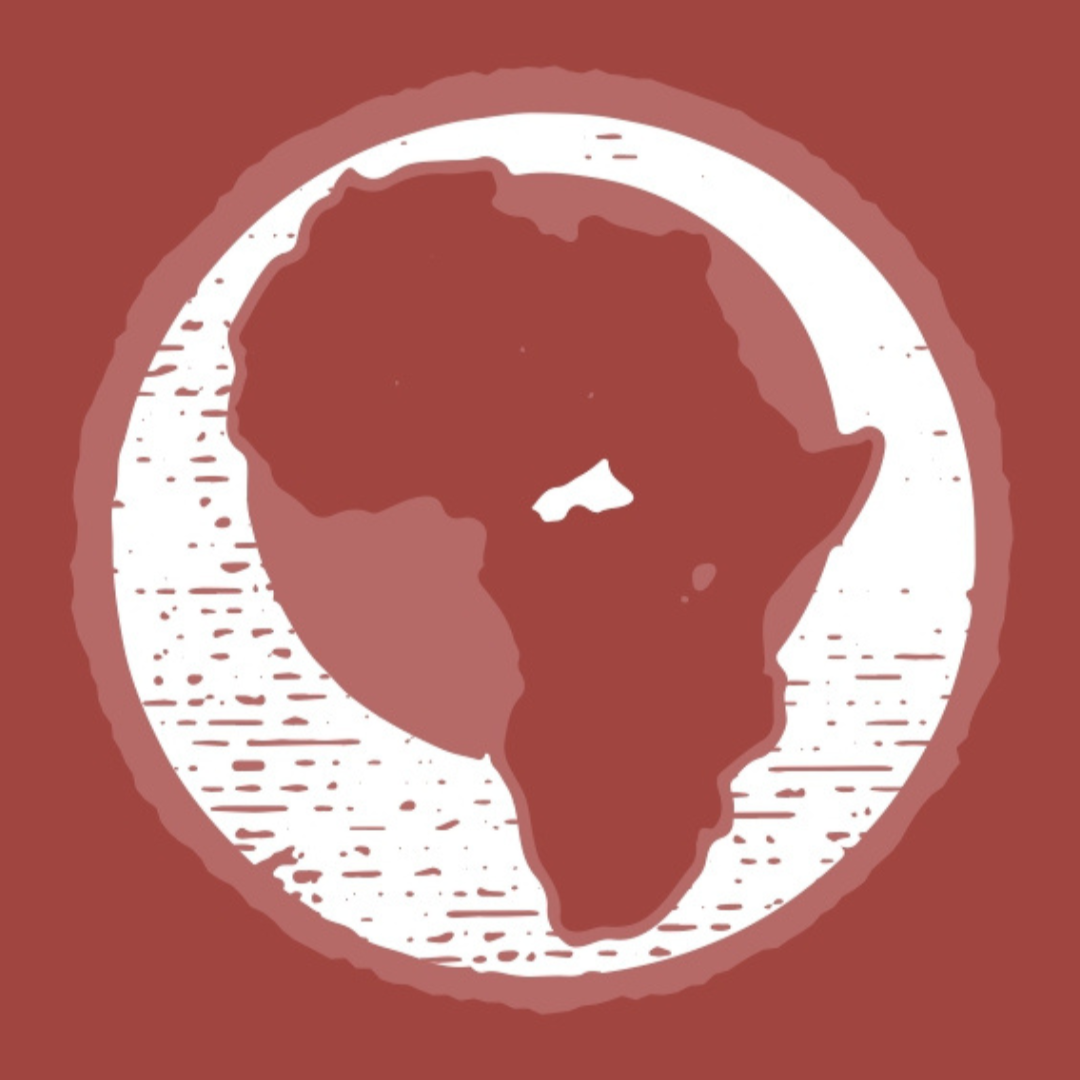
The Country
Poverty Reduction
Setting an Example
Changing the Narrative
Female Empowerment
Contributing Taxes



